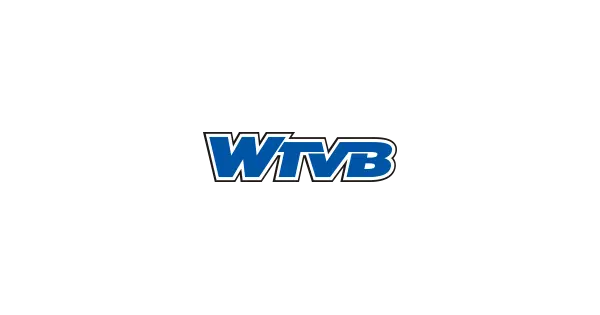
- Select a language for the TTS:
- UK English Female
- UK English Male
- US English Female
- US English Male
- Australian Female
- Australian Male
- Language selected: (auto detect) - EN
Play all audios:
This material may not be published, broadcast, rewritten, or redistributed. ©2025 FOX News Network, LLC. All rights reserved. FAQ - New Privacy Policy
What you need to know before you seek out a personal loan for financial help. (iStock)
The pandemic has created financial hardship for many. If you’re among them, you’re probably waiting for the government’s decision on a second stimulus package. Until then, there are bills to
pay. A personal loan from a bank or credit union could tide you over by providing fast cash, but use caution before signing on the bottom line.
During the coronavirus, some lenders are changing qualification requirements. And your income may not be steady, which could put repayment in jeopardy. A loan may or may not be the right
choice for your situation, and it helps to consider these five questions.
During the pandemic, some lenders raised the credit score requirements on unsecured loans. Depending on your financial history, it could be harder to qualify if you don’t have good or
excellent credit.
Before you apply, check your credit by getting a free FICO score report. You’re entitled to one free report each year from the three major reporting bureaus. With this information, shop
around and compare lenders and rates using a site like Credible to ensure that you are getting the best loan offer with terms that fit your situation.
Typically, online lenders are more lenient than traditional banks. In addition, credit unions will often work with borrowers with average scores if you have an existing account. If you're
interested in seeing what kind of rates you qualify for today, just insert some basic information into Credible's free online tools and you'll see results within minutes.
Lenders will also look at your debt-to-income ratio. Add up your monthly debt payments, such as a mortgage, car payment, or student loan, and divide this number by your monthly income. The
general rule is that borrowers should have no more than 43 percent of their take-home pay dedicated to debt.
If your credit score or debt-to-income ratio make it hard to qualify, you may consider getting a cosigner on your loan. If you have a family member or friend who would be willing to vouch
for you, this could help you get approved and result in a better interest rate.
This is one of the most important loan questions, and the answer depends on how you’ll use it. If you’re planning on consolidating other debts, a personal loan could help to lower your
monthly payments and eliminate high-interest loans to pay off balances faster. A low-interest personal loan should improve your financial health, not add unnecessary stress.
If you're planning on using a personal loan for debt consolidation, it’s important to shop around for the best rates and terms — just let Credible do the work for you. Compare rates and
terms between multiple lenders at once.
If you plan to use the funds for monthly bills like your mortgage or utilities, for example, a personal loan will make those payments more expensive because they add interest to the balance.
And if you default on the loan, you could damage your credit score. Instead, explore other options. For example, many lenders and service providers are working with their customers during
this difficult time by deferring payments without reporting late payments to the credit bureaus.
Before applying, look at the interest rate to determine how much it will cost. The annual percentage rate (APR) includes interest as well as fees the lender charges expressed as a
percentage. According to the Federal Reserve, the average 24-month personal loan has an APR of 9.5 percent.
Also, determine how long you have to pay back the money. Your interest rate will be based on the length of the loan, with shorter terms usually offering lower interest rates. Most loans
offer terms that range from six months to seven years. Your first payment will be due about 30 days after you sign the papers, so be sure you’ll have enough money in your budget.
You can visit Credible to use their personal loan calculator and find the best personal loan rates.
Some lenders’ underwriting practices won’t allow borrowers to have more than one personal loan. Your debt-to-income ratio may also impact your ability to get a second loan. If the payment on
the second loan puts you above the target of 43 percent or less, you’ll have a hard time qualifying, and making the payments could be difficult. When you apply for a second loan, the lender
will pull a hard inquiry on your credit report that can lower your credit score. If one loan isn’t enough, it may be time to consider alternative methods for obtaining the funds.
Reducing expenses and saving money is probably the best way to get ahead financially, but other forms of financing can address your immediate needs. If your credit is good, consider getting
a credit card that offers 0% APR. This can be an effective way to secure money for the short term as long as you can make the monthly payment. Visit an online marketplace like Credible to
view multiple 0% credit card options at once.
But be careful. If you don’t pay off the balance before the end of the promotional period—often 12 to 18 months—you’ll have to pay interest that accrues from the start date of the charges.
These loans can help you get back on your feet during a crisis as long as you are thoughtful with their use and pay them back on time. Choose the option that is right for you in the present
time and the future. The best plan is the one that allows you to come out stronger in the end.
This material may not be published, broadcast, rewritten, or redistributed. ©2025 FOX News Network, LLC. All rights reserved. FAQ - New Privacy Policy









